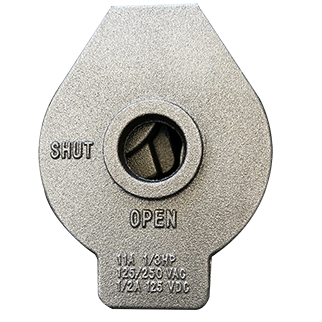ئۆكتەبىر . 22, 2024 05:01 Back to list
Leading Exporter of High-Quality Investment Castings for Global Markets
The Role of Investment Casting Exporters in Global Trade
Investment casting, also known as lost-wax casting, is a sophisticated manufacturing process that produces complex metal components with high precision. It is widely used in various industries, such as aerospace, automotive, medical, and military, due to its ability to create intricate shapes and fine details. In the roaring arena of global trade, investment casting exporters play a crucial role in the distribution of these high-quality products across different markets. This article delves into the importance of investment casting exporters, the benefits they bring to the table, and the challenges they face in an increasingly competitive landscape.
Understanding Investment Casting
The investment casting process involves creating a wax model of the desired component, coating it with a refractory material to form a shell, and subsequently melting away the wax to create a mold. Molten metal is then poured into the mold to produce the final part. This method allows for minimal waste, high dimensional accuracy, and superior surface finish, making it a preferred choice for manufacturers around the world. As industries continue to demand more complex and precisely-engineered components, the expertise of investment casting exporters is increasingly valued.
Significance of Investment Casting Exporters
Investment casting exporters are critical players in the supply chain. They serve as intermediaries between manufacturers and international markets, ensuring that high-quality castings reach customers based in different regions. These exporters possess a wealth of knowledge about global market trends, compliance regulations, and industry standards, enabling them to guide manufacturers in tailoring their products to meet the specific needs of foreign markets.
Moreover, investment casting exporters help manufacturers mitigate risks associated with entering overseas markets. They handle logistics, including transport and customs clearance, which can be particularly daunting for companies unfamiliar with international trade. By leveraging their established networks and expertise, investment casting exporters minimize delays and ensure that products reach customers in a timely manner.
Benefits of Engaging Investment Casting Exporters
1. Access to Global Markets By partnering with investment casting exporters, manufacturers can extend their reach into new geographic areas. This access opens up opportunities for diversification and revenue growth, especially in emerging markets where demand for cast products is on the rise.
investment castings exporter

2. Regulatory Compliance Navigating the regulatory landscape in different countries can be complex. Investment casting exporters are typically well-versed in the legal requirements specific to each market. This knowledge reduces the burden on manufacturers to stay updated on ever-changing laws and standards.
3. Quality Assurance Reputable investment casting exporters place a strong emphasis on quality control. They often have rigorous quality assurance processes in place to ensure that the products meet or exceed international standards, thus enhancing the manufacturer's reputation in the global arena.
4. Cost Efficiency Exporters often have established relationships with carriers and customs brokers, allowing for cost-effective shipping solutions. This can significantly lower the overall expenses for manufacturers when exporting their products.
Challenges Faced by Investment Casting Exporters
Despite the many advantages provided by investment casting exporters, they face several challenges in the current marketplace. Increasing global competition forces exporters to innovate continually and offer services that differentiate them from others. Additionally, fluctuations in currency exchange rates can impact pricing and profit margins, creating uncertainty for exporters and manufacturers alike.
Supply chain disruptions—exacerbated by events like the COVID-19 pandemic—further complicate the landscape. Exporters must be agile and adaptable, finding new routes and suppliers to ensure that they can fulfill orders on time.
Conclusion
In conclusion, investment casting exporters are essential to the success of manufacturers looking to expand their reach in the global market. By providing critical insights, regulatory guidance, and logistical support, they enable companies to navigate the complexities of international trade. As the demand for precision-engineered components continues to grow, the role of investment casting exporters will only become more pronounced, solidifying their position as key players in the global manufacturing landscape. Their ability to adapt and thrive in this dynamic environment will ultimately contribute to the ongoing evolution of the investment casting industry.
-
Centrifugally Cast Iron Water Main Pipe for Reliable Mains
NewsAug.22,2025
-
Durable Centrifugally Cast Iron Water Main Pipe
NewsAug.11,2025
-
Centrifugally Cast Iron Water Main Pipes for Reliability
NewsAug.10,2025
-
High-Quality Centrifugally Cast Iron Water Main Pipes
NewsAug.09,2025
-
Durable Cast Iron Water Main Pipe & Drainage Solutions
NewsAug.08,2025
-
Buy Cast Iron Pipe: Premium Ductile Iron & Drain Solutions
NewsAug.07,2025


